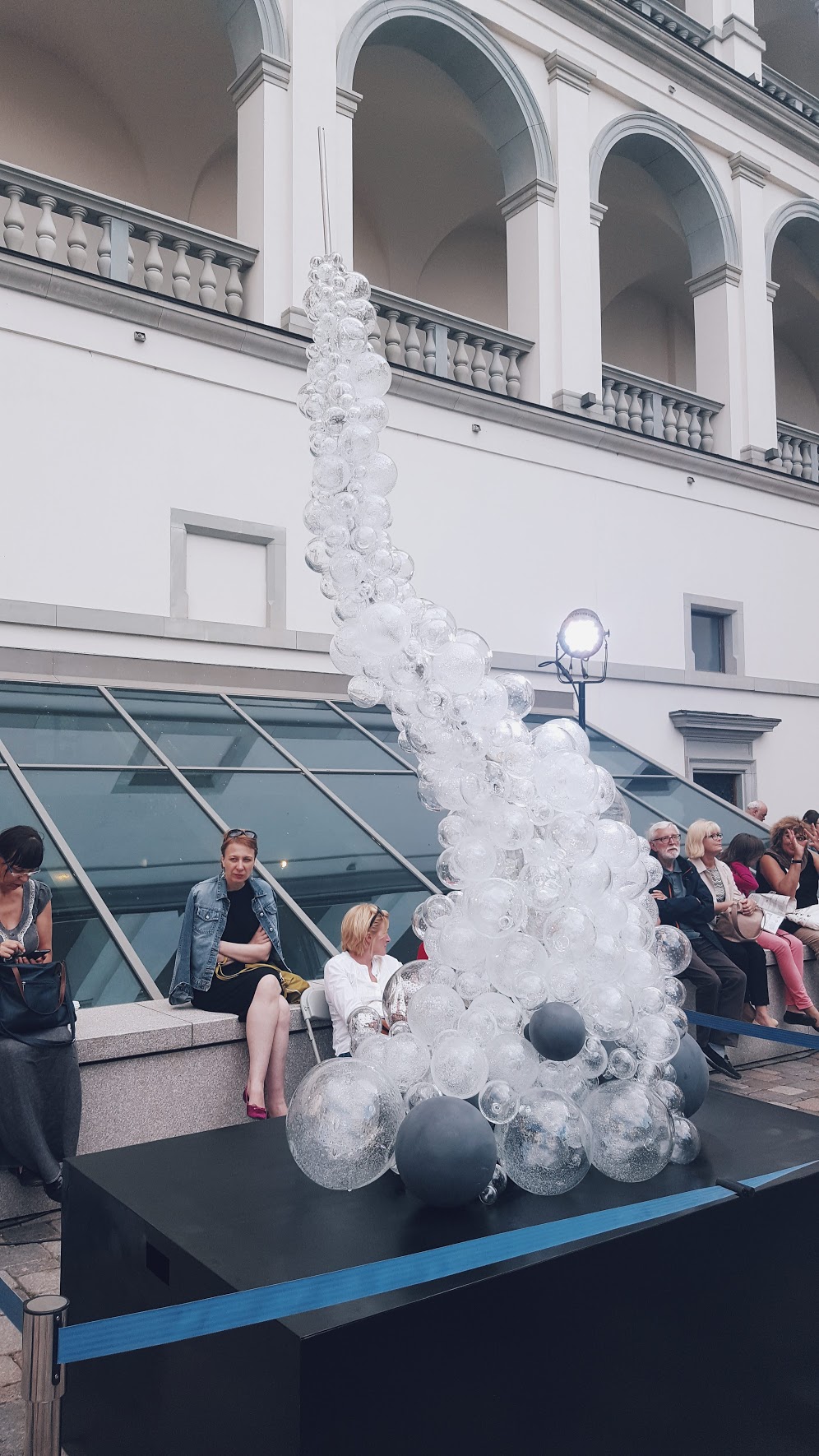Bloom Where You Are Planted
I have been busy putting last minute touches on my presentation for the upcoming conference, booking flights for future travels, and preparing for the post-2L summer job search. As a naturally anxious person, I tend to constantly feel antsy for the next step, obstacle, or challenge.
But recently, I have been learning how to be present in the moment, and to focus on the now instead of the later.

Vilnius, Culture Night, June 15, 2018. Sculptural Installation:
"100 Dreams, 100 Aims, 100 Realizations" by Laura Potet and Vytautas Karčiauskas
Much of this last week has involved meetings and conferences, some for our impending presentations at the Baltic Criminological Seminar, and some for other projects that we have been tasked with. Since my topic for the conference involves children's rights, international law, and criminology, my director connected me with a social work professor at Vilnius University.
What was meant to be a short informational meeting ended up being an hour-long conversation with Professor Lijana Gvaldaitė about how the process of deinstitutionalization of the childcare system has been going in Lithuania. We exchanged our own personal experiences with the European adoption and foster system, as she had done some extensive fieldwork at various large Lithuanian childcare institutions, and in the summer of 2013, I had taught English in Hungary, where many of my students came from large underfunded institutions. On one hand, it was encouraging to find so many similarities in our experiences, since that means the conclusions I will make in my presentation seem to be accurate. On the other hand, it is disheartening to know that there are still so many common issues with children's rights in Europe, especially when it comes to the former Soviet nations.
Of course, there are blatant violations of children's rights occurring in the United States as well, and this past week was a harrowing reminder. Suffice it to say, the world is watching us: for better or for worse. Many people abroad are following the stories of families being separated due to the current administration's policy on the US-Mexico border.
I don't believe in American exceptionalism, but it can still be hard to acknowledge the faults of the country where I grew up. We all have our blind spots, and I had to confront some of them last week. Beth and I had to go over our presentations with our director, Algis. While I was expecting some questions about small details in my presentation, I was not expecting the amount of constructive criticism that I received from him. My immediate reaction was to be defensive, but the more that I thought about his comments, the more I realized that he had a point.
One big point of contention was my discussion of the United Nations Convention on the Rights of the Child (UNCRC), a human rights treaty, and how it has played a role in the global push for children's rights. Algis had an issue with me focusing so much on the UNCRC as an American presenter, because the United States has actually chosen not to ratify the treaty. Concerns about sovereignty and federalism played a large role in the United States' decision not to ratify the UNCRC. One interesting thing I learned in the course of my research is that advocates of homeschooling were particularly concerned about the treaty, and were one of the most vocal opposition groups that did not want the U.S. to ratify it. Compared to many other economically developed nations, the United States as a whole has pretty lax laws regarding homeschooling. Anyways, Algis thought it might come off as a little hypocritical if I focused too much on the UNCRC when my own country had chosen not to ratify it. Since part of my presentation looks at the process of American deinstitionalization (DI) from the 1940's to the 1980's moving from large institutions to a smaller, family-oriented foster care system, I realized that it could seem confusing if I promoted the UNCRC, but also touted the United States' DI process as something that European countries could model. Really thinking through why I received the criticism that I did helped me refine the way I plan to present my research, even if I didn't agree with all of it. Hopefully, next Friday, my presentation will be engaging, informative, and culturally sensitive.
Earlier this week, Beth and I met with Odeta, the deputy director of the Center for Crime Prevention in Lithuania. She is hoping to create a set of short videos that can help educate the public on nonviolent crimes such as stalking, harrassment, cyberbullying, racism, and discrimination towards the LGBT+ community. We were given the task of doing some research on these various topics in Lithuania, and coming up with potential organizations or contacts that we could partner with for the videos.
As I was doing the research on potential LGBT+ advocacy groups in Lithuania we could work with, I found the website for the Lithuanian Gay League, which is the only national organization in Lithuania focused exclusively on LGBT+ rights. As I scrolled through their website, I discovered that their office was located right next door to our apartment! This was exciting news to me, because I had been involved in LGBT+ advocacy at my conservative evangelical university during my undergraduate days. This small discovery was a reminder to myself that while it is good to be prepared for the future, I can't worry too much at the expense of missing the positive things that are happening right now. I am already halfway through this internship, but I still have five weeks to go. I am going to try to contribute as much as I can in our remaining time here, and hopefully when it is time to leave, whatever I have cultivated will continue to grow long after I'm gone.